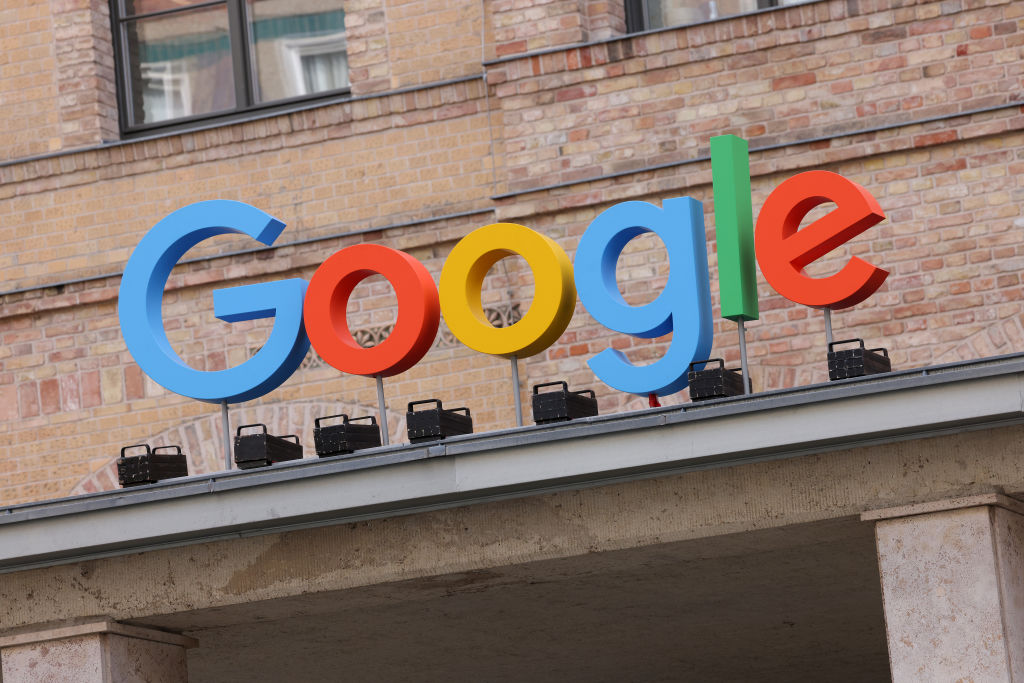Indiana, Washington, Texas, and D.C. sue Google over location tracking


A free daily email with the biggest news stories of the day – and the best features from TheWeek.com
You are now subscribed
Your newsletter sign-up was successful
Three states and the District of Colombia sued Google on Monday, claiming the company "deceived consumers to gain access to their location data," The New York Times reports.
The separate lawsuits filed by the attorneys general of Washington, D.C., Texas, Washington, and Indiana allege that Google "misled users of Android phones and of tools like Google Maps and its search engine by continuing to track location information of users who had changed privacy setting to prevent the data collection," writes the Times.
"Google has prioritized profits over people," said Indiana Attorney General Todd Rokita. "It has prioritized financial earnings over following the law."
The Week
Escape your echo chamber. Get the facts behind the news, plus analysis from multiple perspectives.

Sign up for The Week's Free Newsletters
From our morning news briefing to a weekly Good News Newsletter, get the best of The Week delivered directly to your inbox.
From our morning news briefing to a weekly Good News Newsletter, get the best of The Week delivered directly to your inbox.
The four attorneys general, who have also joined in other antitrust lawsuits against the tech giant, said they hope their cases force the company to stop the alleged activity and pay a fine, per the Times.
In the D.C. lawsuit, for example, Google is accused of collecting and storing a user's location information even if the user has opted out, as well as coercing users to enable more location tracking by misleadingly claming apps wouldn't function properly without doing so, the Times reports.
"Google falsely led consumers to believe that changing their account and device settings would allow customers to protect their privacy and control what personal data the company could access," said Karl Racine, the D.C. attorney general, in a statement. "The truth is that contrary to Google's representations it continues to systematically surveil customers and profit from customer data."
Racine, who led the complaints, said investigators concluded Google has been making "misleading and conflicting claims" regarding its offered privacy protections since at least 2014, the Times writes.
A free daily email with the biggest news stories of the day – and the best features from TheWeek.com
Google maintains all allegations by the attorneys general are false, and that the company has taken steps to protect customers' location data.
Brigid Kennedy worked at The Week from 2021 to 2023 as a staff writer, junior editor and then story editor, with an interest in U.S. politics, the economy and the music industry.
-
 A dreamy long weekend on the Amalfi Coast
A dreamy long weekend on the Amalfi CoastThe Week Recommends History, pasta, scenic views – this sun-drenched stretch of Italy’s southern coast has it all
-
 Can foster care overhaul stop ‘exodus’ of carers?
Can foster care overhaul stop ‘exodus’ of carers?Today’s Big Question Government announces plans to modernise ‘broken’ system and recruit more carers, but fostering remains unevenly paid and highly stressful
-
 6 exquisite homes with vast acreage
6 exquisite homes with vast acreageFeature Featuring an off-the-grid contemporary home in New Mexico and lakefront farmhouse in Massachusetts
-
 Australia’s teen social media ban takes effect
Australia’s teen social media ban takes effectSpeed Read Kids under age 16 are now barred from platforms including YouTube, TikTok, Instagram, Facebook, Snapchat and Reddit
-
 Google avoids the worst in antitrust ruling
Google avoids the worst in antitrust rulingSpeed Read A federal judge rejected the government's request to break up Google
-
 Supreme Court allows social media age check law
Supreme Court allows social media age check lawSpeed Read The court refused to intervene in a decision that affirmed a Mississippi law requiring social media users to verify their ages
-
 Nvidia hits $4 trillion milestone
Nvidia hits $4 trillion milestoneSpeed Read The success of the chipmaker has been buoyed by demand for artificial intelligence
-
 X CEO Yaccarino quits after two years
X CEO Yaccarino quits after two yearsSpeed Read Elon Musk hired Linda Yaccarino to run X in 2023
-
 Musk chatbot Grok praises Hitler on X
Musk chatbot Grok praises Hitler on XSpeed Read Grok made antisemitic comments and referred to itself as 'MechaHitler'
-
 Disney, Universal sue AI firm over 'plagiarism'
Disney, Universal sue AI firm over 'plagiarism'Speed Read The studios say that Midjourney copied characters from their most famous franchises
-
 Amazon launches 1st Kuiper internet satellites
Amazon launches 1st Kuiper internet satellitesSpeed Read The battle of billionaires continues in space
